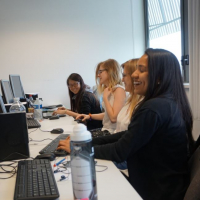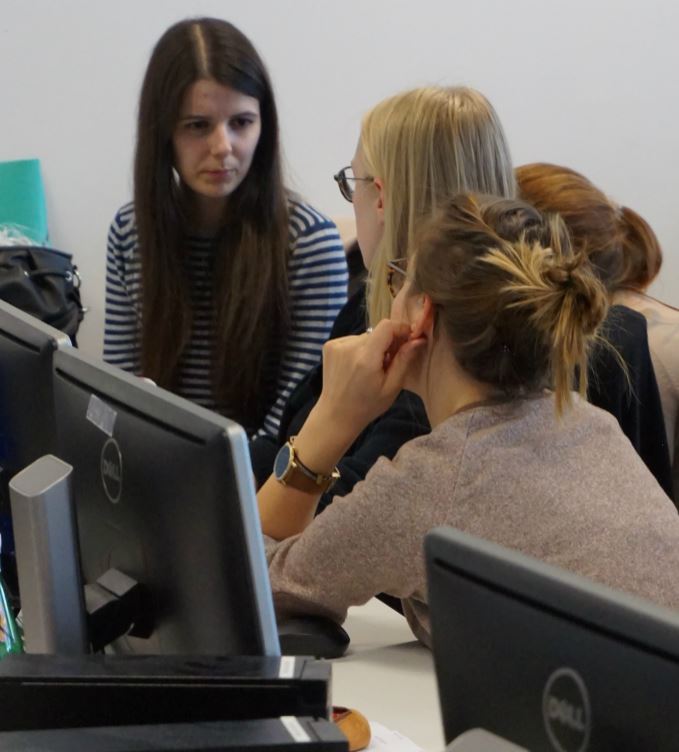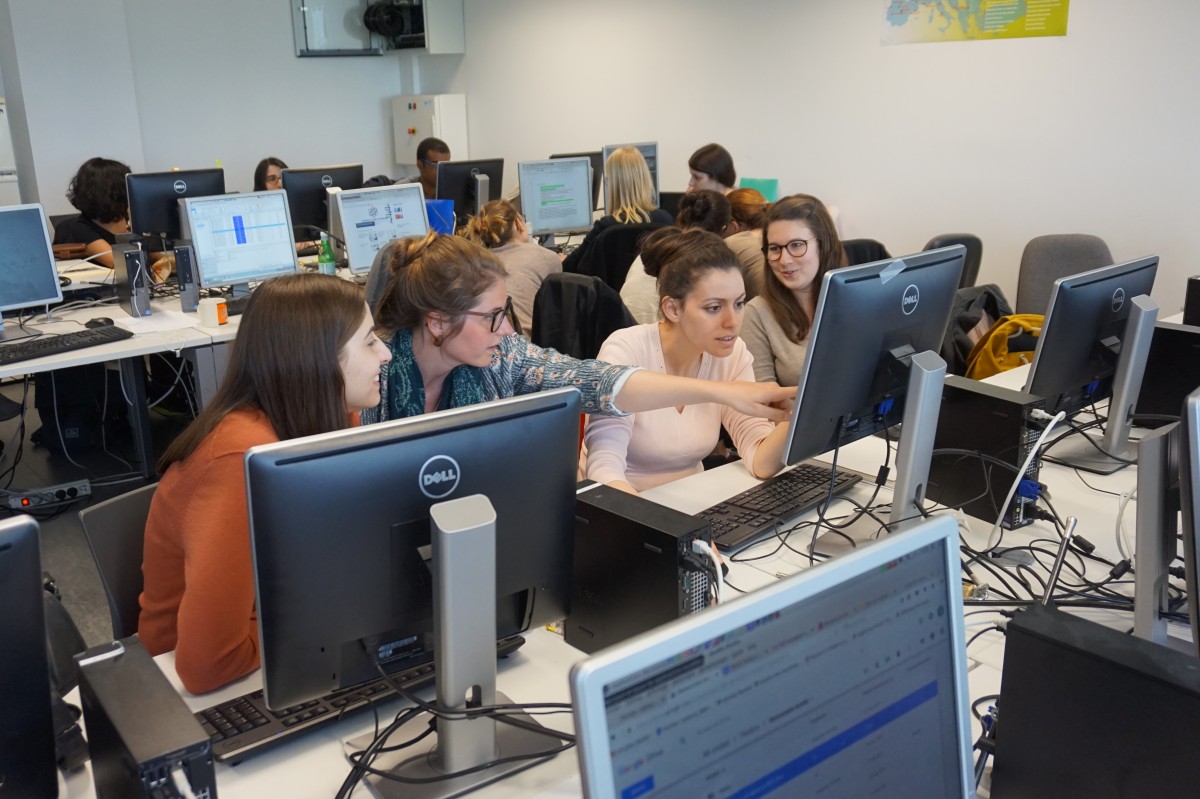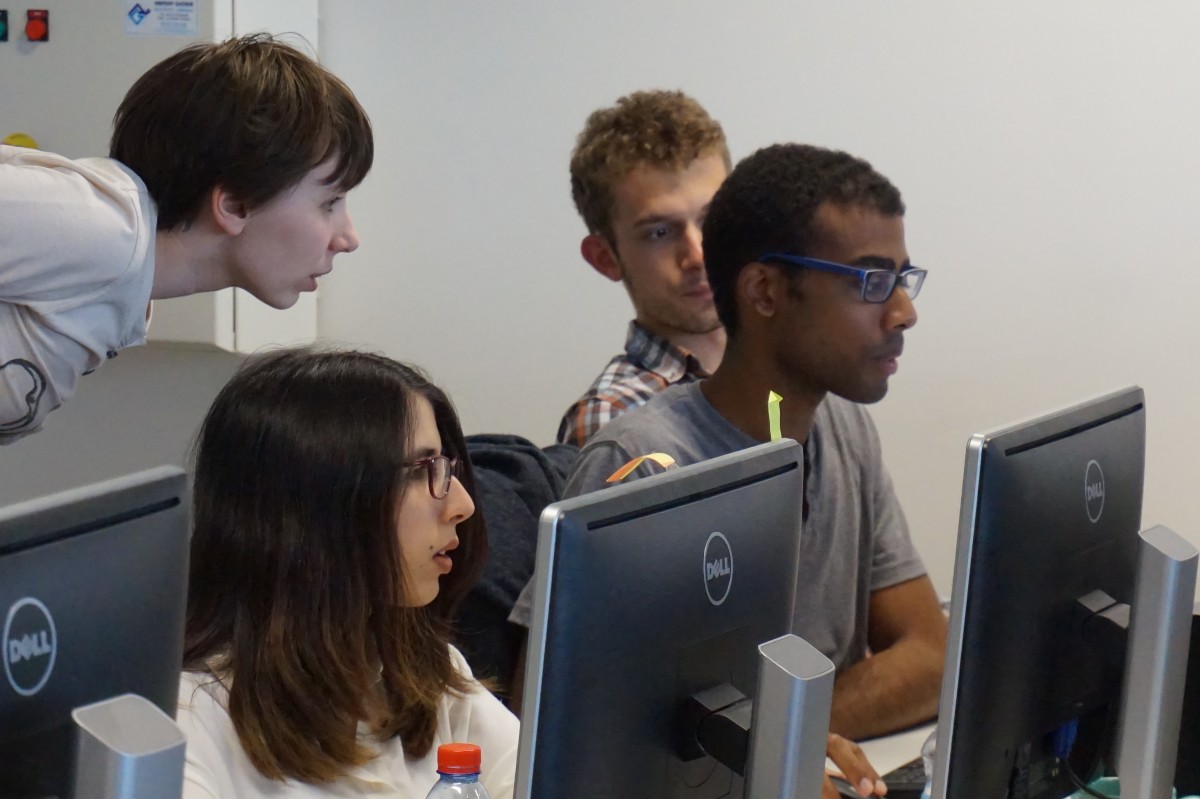
Students and teachers play an important role in Cochrane. They are involved in educating the next generation of healthcare professionals about evidence-based medicine, directly contributing to a global effort of identifying health evidence, to translating Cochrane evidence in 14 different languages.
Hanna Martikainen conducts PhD research at Paris Diderot University on the French-language translation of Cochrane Systematic Review abstracts. Having previously worked as a translation coordinator and post-editor for Cochrane France, she now teaches a class in post-editing medical LSP at the Department of Cross-Cultural Studies and Applied Languages (EILA) at Paris Diderot University. During the past academic year (2016-2017), second year Master’s students in specialized translation have had a unique opportunity to contribute to the French translation project by post-editing machine-translated Cochrane abstracts and Plain Language Summaries. The project has been renewed for the coming academic year and the students have shared their experience here.
Marie, Angèle, Margarita, Pierre, and Pauline described the profiles and general background of students in their second year Master’s degree in specialized translation: "We are a group of 20 students from the ILTS (Industrie de la Langue et Traduction Spécialisée) Master’s degree at Paris Diderot University This course is open to students with prior translation experience in which is the case for most of us, but also to students who have technical experience and who speak at least two languages. None of our courses had trained us to domedical translation. Each one of us had the opportunity to post-edit five medical texts for Cochrane. It was a great experience because we discovered a new field and a new way to work with languages.”

Vera, Marie, Lionelle, Marion, and Justine explained their post-editing work: "Post-editing consists of editing automatic translation produced by a machine. You may already have used machine translation such as Google Translate. Post-editing will undoubtedly play an important part in the future of translation since it will help improve productivity and reduce costs. During the post-editing process, we often had to rephrase or rearrange long and complex sentences, and fix mistranslations, grammatical errors, and inconsistencies."

Nadjet, Mélanie, Pauline, and Lucie noted the specificities of medical English and their importance when translating: "We noticed that English terms do not necessarily belong to languages for specific purposes (LSP), they often seem very simplified. In French, it is quite the opposite since specialized terminology of Latin origin is almost the only one to be used in both LSP and general language.Also the use of passive sentences in English is very common, while we are instructed to avoid them in French as much as possible.”

Joanna, Maya, Camille, Bruno, and Mickaël discussed how their pre-conceived expectations compared to the reality of post-editing: "We thought it would be necessary to have medicine-related knowledge. In reality, the first paragraphs gave us a good grasp of the subject. We simply needed to do some extra research to make sure the terminology was accurate and we had correctly understood the process of thought. Ofcoursethe machine version is not entirely reliable but it was far more efficient than we expected."

Post-editing machine-translated Cochrane texts gave the students a hands-on introduction not only to this recent and booming domain of translation industries, but also to the specificities of medical translation. Moreover, the experience was a professionalizing one, given that the student post-editions were all published on Cochrane websites with acknowledgment given to post-editors.
If you are a student, learn about the many ways you can get involved with Cochane:
- Students for Best Evidence: a network for students interested in evidence-based healthcare
- Translate Cochrane evidence: learn about translating Cochrane materials
- Cochrane Crowd: become a Cochrane citizen scientist.
- Join Cochrane: help us improve the health of people everywhere
